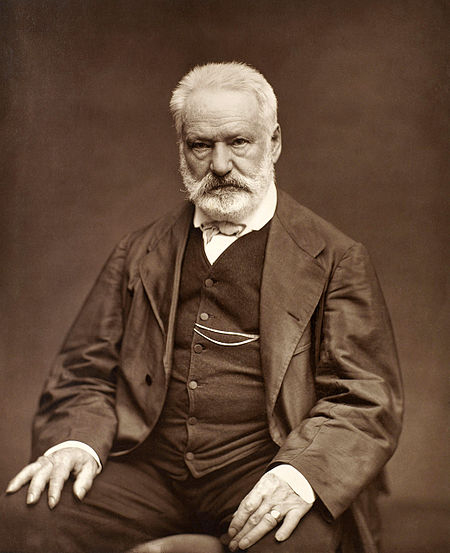Last year I shared our story of the vandalism and theft of items on our pop-up camper.
Last night or early this morning we were again the victims of a thief; a lowly creature who stole our left rear tire and wheel.
The theft was hardly an inconvenience when you take into consideration that most of my was spent dealing with the police, the insurance company, my local Ford dealer, and AAA.
I suppose the good news is only one tire and wheel was stolen and the replacement cost is $1,139.76 minus my $500 deductible. That is better than $4,500 for a complete set.
An Interesting Tale
I had the SUV towed to our local Ford dealer, about 9 miles away, for a new tire and wheel. The service advisor showed me another Expedition with the same exact wheels on the lot, only this one was missing three wheels.
Out of curiosity, she checked the owner’s address and told me what street it was on (not the actual address out of privacy concerns) and it was just two blocks away from our house. So the criminals had stolen a complete set of tires and wheels.
To add insult to injury, our police department no longer answers phone calls. You can call 911, but if it isn’t a defined emergency, you call can be classified as a crime. In our city you must file an online police report, which I did. Never heard back from the police.
Life, Liberty, Property, and the Pursuit of Happiness
Despite the fact that in the U.S. life, liberty, property, and the pursuit of happiness are natural laws that cannot me limited or amended by the government, we are at the mercy of criminals because our criminal justice system is doing a poor job. Our true protection is from insurance, security devices, alarm systems, internet firewalls, identity protection companies, and the like. Billions are spent by individuals like you and me because the taxes we pay for police and a judicial system are not getting the job done.
WHAT WE CAN LEARN FROM LITERATURE
The philosophers and intellectuals are the people who apply philosophical principles to society. These ideas are cascaded down by artists, writers, politicians, movie producers, and others. Victor Hugo was one who presented philosophy and reform, but he missed the mark on several occasions; he could have been the greatest writer of all time, but settled for great instead.
 In 1862, Victor Hugo addressed these issues in the well written novel, Les Misérables. Hugo was probably the best writer of the Romantic Era. Unfortunately, Hugo came to several wrong conclusions, or maybe it is better put that he did not identify the root causes. Given that 19th century France did not have the individual freedoms the U.S. enjoyed at the time, it is understandable and right that Hugo was critical of French society. Although France published the Declaration of the Rights of Man and of the Citizen in 1789, with the help of Thomas Jefferson, the French Revolution was short-lived with the French First Republic (1792-1799), the First Empire (1804-1814), the Restoration (1814-1830), the July Monarch (1830-1848), the Second Republic (1848-1852), and the Third Republic (1870-1940).
In 1862, Victor Hugo addressed these issues in the well written novel, Les Misérables. Hugo was probably the best writer of the Romantic Era. Unfortunately, Hugo came to several wrong conclusions, or maybe it is better put that he did not identify the root causes. Given that 19th century France did not have the individual freedoms the U.S. enjoyed at the time, it is understandable and right that Hugo was critical of French society. Although France published the Declaration of the Rights of Man and of the Citizen in 1789, with the help of Thomas Jefferson, the French Revolution was short-lived with the French First Republic (1792-1799), the First Empire (1804-1814), the Restoration (1814-1830), the July Monarch (1830-1848), the Second Republic (1848-1852), and the Third Republic (1870-1940).
Although Hugo was a supporter of Republicanism, he failed to see that industrialism and capitalism where the vehicles for individual freedom, especially given the success during his lifetime of contemporary America.
The hero of Les Misérables, Valjean, is sentenced to 19 years in prison for stealing a loaf of bread, and implies that the criminal justice system causes those who commit minor crimes to become career criminals, while the real criminals who commit despicable crimes get short sentences. Let us not forget that committing crimes against others is a choice. Hugo is also critical of the educational system, and the treatment of women. In Les Misérables, he writes about the woman Fantine who turns to prostitution to support herself having no option due to her deep poverty.
What is the story of Fantine about? It is about society buying a slave. From whom? From misery.
From hunger, from cold, from loneliness, from desertion, from privation. Melancholy barter. A soul for a piece of bread. Misery makes the offer; society accepts.
The holy law of Jesus Christ governs our civilization, but it does not yet permeate it. They say that slavery has disappeared from European civilization. That is incorrect. It still exists, but now it weighs only on women, and it is called prostitution.
It weighs on women, that is to say, on grace, frailty, beauty, motherhood. This is not the least among man’s shames.
At this stage in the mournful drama, Fantine has nothing left of what she had formerly been. She has turned to marble in becoming corrupted. Whoever touches her feels a chill. She goes her way, she endures you, she ignores you; she is the incarnation of dishonor and severity. Life and the social order have spoken their last word to her. All that can happen to her has happened. She has endured all, borne all, experienced all, suffered all, lost all, wept for all.
I want to emphasize a point from the above quote:
We say that slavery has vanished from European civilization, but this is not true. Slavery still exists, but now it applies only to women and its name is prostitution.
He blames “society” for the ills of poverty and crime. Hugo see poverty as slavery. 19th century France did not have an economic system that supported freedom for all people; the only social system that supports freedom is capitalism. In America, in a scant 100 years, mankind saw the greatest improvement in the lives of all people with a social system that recognized the rights of the individual, to include property rights. And Hugo missed his opportunity to present a solution. Hugo almost gets there with this passage in Les Misérables
During the past two years there had occurred one of those industrial developments which are major events in the life of a small community… The traditional local industry of Montreul-sur-mer was the manufacture of imitation English jet beads and the “black glass” of Germany. Because of the cost of raw materials the industry had never been prosperous and its workers had been underpaid, but this situation had recently been transformed. Towards the end of 1815 a newcomer to the town had had the idea of substituting shellac for resin, and had also devised a simpler and less expensive form of clasp for such things as bracelets. These trifling changes amounted to a revolution. They greatly reduced costs, which in the first place enabled the trade to pay higher wages, and thus benefited the district. And they made it possible to reduce prices while increasing the manufacturer’s profit. Three beneficial results; and in less than three years the innovator had grown rich, which is good and had spread prosperity around him, which is better. [bold is by me – NG]
TODAY
It is immoral to initiate force against another individual. This does not mean physical force only, but any action that limits our natural rights to life, liberty, property, or the pursuit of happiness. This does not mean we are guaranteed property or happiness, but we are free to pursue them if we choose. And we need an economic system to support these concepts. How we strayed from these natural rights over the past 100 plus years is mind boggling.
Cummlatively we too many people are no longer responsible for themselves, but look to others to be our keepers. They want to be guaranteed a job and even health insurance. Too many feel no effort is needed on their part take care of themselves; there is no need to earn these things. “Someone” should or will provide for them. They will steal from us, whether it is a one-off crime, our under the guise of social programs.
Those who initiate force against us are often not held accountable for the crimes. The liberals tell us they are products of their environment and a lack of economic opportunities. We put people in prison for using drugs, which I denounced in Backpacking, Camping, and Marijuana; leaving no room in our prisons for the real real criminals who initiate force against others. Criminals plea bargain crimes and gain nominal punishment – the criminals’ rights are greater than our own individual rights. We have forgotten that criminals forfeit their rights — we no longer apply the principle when appropriate.
Prison is no longer a consequence for initiating force, but a place for rehabilitation – it tries to provide education and skills for people who failed to take advantage of the opportunities available when they were free to do so. This concept of rehabilitation is wrong. Hold the criminals accountable for their actions; they made the choice.
I know I sound bitter and frustrated because of recent personal incidents. But my thoughts and principles have been with me for all my adult life, and even before when I was a child. The principles I formulated on criminal justice as a teenager were influenced by Les Misérables, when I realized the true root cause of Hugo’s observations of society.
When I was a Cadet at the USAF Academy we lived by The Honor Code, which states
We Will Not Lie, Steal Or Cheat, Nor Tolerate Among Us Anyone Who Does
It is time for all of us to adopt this as a minimum standard of living.

